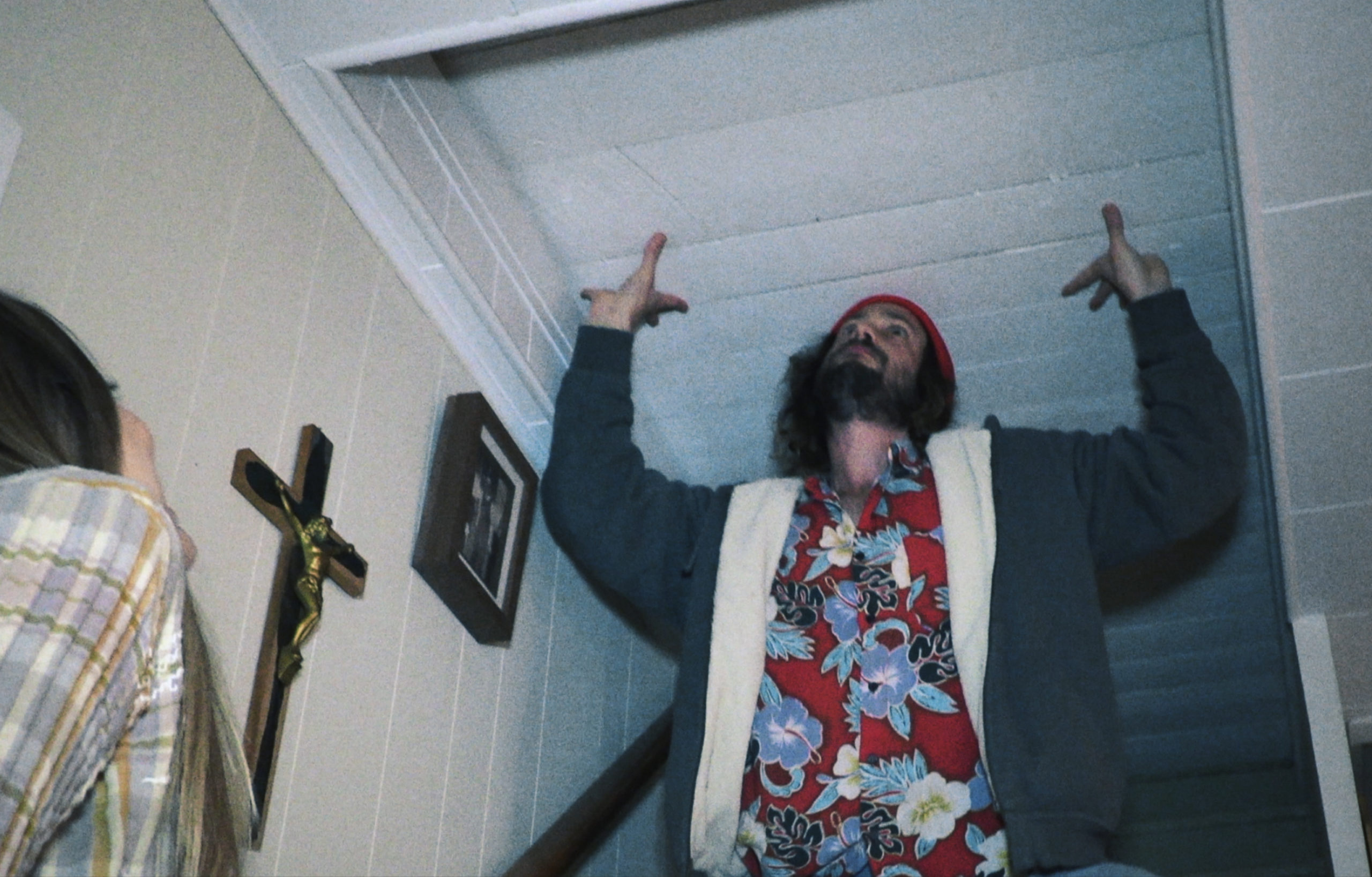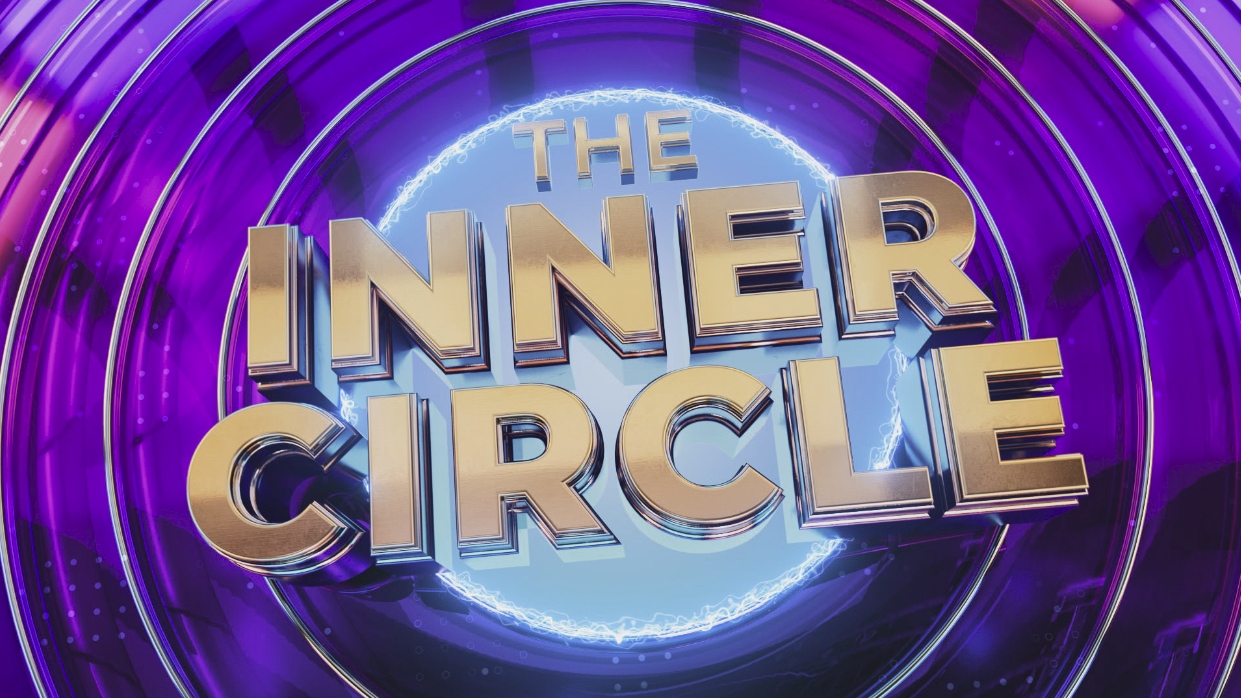What to Watch Verdict
'Curse Of Aurore' fails to distance itself from most bargain-bin found footage'ers despite backing itself on Aurore Gagnon's tragic real-world fate.
Pros
- +
✝️ Ghosts don't waste time.
- +
✝️ One or two genuine performance notes.
Cons
- -
✝️ Animated on-screen scares are cheaply produced.
- -
✝️ The third act is a speed round.
- -
✝️ Neat concept, poor execution.
- -
✝️ Filled with the same tired tropes.
Unexpectedly, Curse Of Aurore is based on the real Aurore Gagnon. On February 12th, 1920, ten-year-old Aurore succumbed to exhaustion and blood poisoning due to fifty-plus injuries inflicted by stepmother Marie-Anne Houde and father Télesphore Gagnon. Writers Llana Barron and Mehran C. Torgoley (also directing) invoke the name of an abused daughter in hopes of adding reverence to their Dark Web investigation haunter. Instead, inspired thematic hatchings crumble during the film’s third-act (or lack thereof). A deceased adolescent, an ambitious trio of LA filmmaker hopefuls, and historical context can’t overcome an otherwise generic reel of first-person horror voyeurism.
Any intentions to “elevate” horror’s most maligned subgenre evaporate once this true-crime hybrid pumps the brakes with cement shoes.
California buddies Aaron (Lex Wilson) and Kevin (Jordan Kaplan) arrive in rural Quebec at the behest of actress and collaborator Lena (Llana Barron). Their impetus is more or less a writer's retreat inside Lena’s heritage cottage, as they await sales news on their previously completed “marketable” feature. Lena’s newest idea involves adapting the local atrocity of Aurore Gagnon’s death in Fortierville, not far from their basecamp. Without wasting a single minute, the friends begin interviewing townsfolk and poking their noses in hopes of producing the newest buzzworthy horror event. Instead, they awaken an entity that’s happy to oblige their request for lens-captured terror.
As Torgoley’s characters speak about Aurore, the benefits of spotlighting an actual soul-sucking tragedy are evident. Lena too-cheerily recounts how Aurore was found deceased, festering atop a pile of excrement, her words caught between profiting off traumatic records and telling a story better left buried. It’s jarring enough when documentarians chase ghosts with no earthly ties, but Gagnon’s demise and Marie-Anne Houde’s merciless tormentor of innocence exist in French Quebecois lore. Incest, godlessness, and unpunished crimes lower the gate for tangible evils that can - nay, do - spread, which requires little salesmanship when it comes to the malevolence propelling Curse Of Aurore. The setup, on paper, is aces.
I give Torgoley even more credit because paranormal interjections aren’t withheld until latter-stage climactic altercations. Upon Lena’s initial tour through her family’s brick-walled Canadian bungalow, Aaron’s cinematography catches a full-on apparition hovering out-of-sight. Soon after, a crucifix rotates. Another ghastly mug flashes into a background mirror, or gravestone, or hallway while the stage is being set for something even more sinister. Curse Of Aurore isn’t one of those “wait and see” found footage elongations that forces viewers to hold until the final minutes for a brief burst of devilish alarm. Through impure CGI pixelation, albeit, but shoddier effects imprints are excused when filmmakers idealistically operate above their means.
Unfortunately, Curse Of Aurore cannot sidestep its fate as just another camera-to-eye thriller that nurtures promise but severs itself at the legs since there’s so much story left in limbo.
Even worse, Barron and Torgoley’s screenplay leans on timeless trope crutches and meddlesome characters who are ultimately revealed to be consumed by their passion. There’s a single genuine moment when Lena, intoxicated next to an empty bottle of wine, through tears, laments a reality where all her squad’s hard work reaches zero audiences (“I’m tired of being optimistic”). Actual emotional fallout versus Kevin’s kleptomaniac tenancies when he steals a can of beer from a local grocer, a book titled “Languages Of The Dead” from a spiritualist who miraculously pulls three “Death” tarot cards, and a broken rosary from the Gagnon estate because, welp, channeling the dead is the quickest way to infamy. The old, “Let’s open the door for demonic entities, what’s the worst that can happen?” Aided by Aaron’s, “Well, this is a bad idea, but sure, go ahead!”
There’s so much thematic richness to mine between the possibilities of Aurore’s unrested soul patrolling Fortierville, or Marie-Anne Houde’s unfinished maliciousness causing havoc, or even the film’s wraparound, where YouTuber Casey Nolan (MindseedTV) opens and closes a “Dark Web Mystery Box” that contains evidence from the film’s events. Torgoley takes wishy-washy measures to build a mythology around Marie-Anne Houde and falls into cheapened subgenre traps like adding tracking static to scenes. I mean, who hasn’t seen a found footage movie without fuzzy overlays that might blur hidden pictures [note sarcasm]? Kevin’s antics are dumb-dumb, Aaron’s infatuation with Lena never expands, and just like Aurore’s mythology, the film keeps introducing intrigue via details that are undone when the cumulative efforts of a few shifty townsfolk attempt some gut-punch Hereditary or Webcast finale. Too rapidly, too inconsequentially (imagery included), as the film bows when it should catch its last and most emphatic wind.
Curse Of Aurore eventually finds more frustrations than freedoms within its attempts to redefine found footage cinema, which it does not. At times, the grandmother’s-decor religious commentary, teased witchcraft, and farmhouse cult threats present a basis for ghoul hunting done right. Instead, Mehran C. Torgoley runs two-thirds of a marathon then takes the shortcut to infamy. I so wish the closing wrapup did anything with preceding materials, but it’s the equivalent of “well, you’re screwed,” followed by a single shot or two that confirms, “yup, you’re screwed” with the least exciting tangent you could have chosen. An interesting premise is only half any scribe’s battle, which even Aaron points out during the cast’s script-writing daze. A film that doesn’t even listen to its own talkback messages? Exactly the rough-around-every-edge letdown you’d deduce.
Matt Donato is a Rotten Tomatoes approved film critic who stays up too late typing words for What To Watch, IGN, Paste, Bloody Disgusting, Fangoria and countless other publications. He is a member of Critics Choice and co-hosts a weekly livestream with Perri Nemiroff called the Merri Hour. You probably shouldn't feed him after midnight, just to be safe.












